- Clone
- 7E9 (See other available formats)
- Regulatory Status
- RUO
- Other Names
- CR2/CR1
- Isotype
- Rat IgG2a, κ
- Ave. Rating
- Submit a Review
- Product Citations
- 14 publications
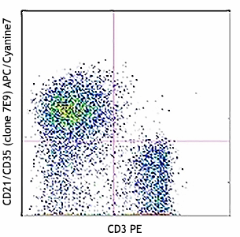
| Cat # | Size | Price | Quantity Check Availability | Save | ||
|---|---|---|---|---|---|---|
| 123417 | 25 µg | 113€ | ||||
| 123418 | 100 µg | 282€ | ||||
CD21, also known as CR2 (complement receptor 2) and C3d receptor, binds C3d and iC3b. It is also a receptor of Epstein-Barr virus. CD35, also known as CR1, binds C3b, iC3b, C4b, and iC4b. CD21/CD35 is primarily expressed on B lymphocytes, mast cells, follicular dendritic cells, macrophages, and activated granulocytes. CD21/CD35 forms part of the B-cell antigen receptor complex with CD19 and CD81 and is involved in signal transduction.
Product DetailsProduct Details
- Verified Reactivity
- Mouse
- Antibody Type
- Monoclonal
- Host Species
- Rat
- Immunogen
- CD35/CFA
- Formulation
- Phosphate-buffered solution, pH 7.2, containing 0.09% sodium azide.
- Preparation
- The antibody was purified by affinity chromatography, and conjugated with APC/Cyanine7 under optimal conditions.
- Concentration
- 0.2 mg/ml
- Storage & Handling
- The antibody solution should be stored undiluted between 2°C and 8°C, and protected from prolonged exposure to light. Do not freeze.
- Application
-
FC - Quality tested
- Recommended Usage
-
Each lot of this antibody is quality control tested by immunofluorescent staining with flow cytometric analysis. For flow cytometric staining, the suggested use of this reagent is ≤ 0.25 µg per 106 cells in 100 µl volume. It is recommended that the reagent be titrated for optimal performance for each application.
- Excitation Laser
-
Red Laser (633 nm)
- Application References
-
- Boackle S, et al. 2001 Immunity 15:775.
- de Andres B, et al. 2012. J. Immunol. 189:2300. PubMed
- Chiu YK, et al. 2014. J Immunol. 193:2207. PubMed
- Koening PA, et al. 2014. J Biol Chem. 289:34490. PubMed
- Radtke AJ, et al. 2020. Proc Natl Acad Sci U S A. 117:33455-65. (SB) PubMed
- Radtke AJ, et al. 2022. Nat Protoc. 17:378-401. (SB) PubMed
- Product Citations
-
- RRID
-
AB_1953274 (BioLegend Cat. No. 123417)
AB_1953275 (BioLegend Cat. No. 123418)
Antigen Details
- Structure
- 145 kD/190 kD type I transmembrane glycoprotein
- Distribution
-
B cells, follicular dendritic cells
- Function
- Signal transduction
- Ligand/Receptor
- Associated with CD19/CD81. CD21 binds C3d, iC3b, and EBV; CD35 binds C3b, iC3b, C4b, and iC4b.
- Cell Type
- B cells, Dendritic cells
- Biology Area
- Cell Biology, Costimulatory Molecules, Immunology, Neuroinflammation, Neuroscience
- Molecular Family
- Adhesion Molecules, CD Molecules
- Antigen References
-
1. Kozono Y, et al. 1998. J. Immunol. 160:1562.
2. Shimizu I, et al. 2007. Blood 109:1773.
3. Roozendaal R and MC. Carroll. 2007. Immunol. Rev. 219:157. - Gene ID
- 12902 View all products for this Gene ID 12946 View all products for this Gene ID
- UniProt
- View information about CD21/CD35 on UniProt.org
Related Pages & Pathways
Pages
Related FAQs
Other Formats
View All CD21,CD35 Reagents Request Custom ConjugationCustomers Also Purchased
Compare Data Across All Formats
This data display is provided for general comparisons between formats.
Your actual data may vary due to variations in samples, target cells, instruments and their settings, staining conditions, and other factors.
If you need assistance with selecting the best format contact our expert technical support team.
-
PE/Cyanine7 anti-mouse CD21/CD35 (CR2/CR1)
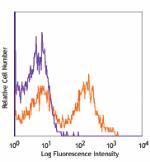
C57BL/6 mouse splenocytes stained with 7E9 PE/Cyanine7 -
APC/Cyanine7 anti-mouse CD21/CD35 (CR2/CR1)
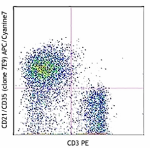
C57BL/6 mouse splenocytes stained with 7E9 APC/Cyanine7 and ... -
Biotin anti-mouse CD21/CD35 (CR2/CR1)
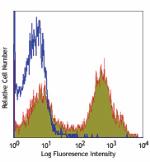
C57BL/6 mouse splenocytes stained with biotinylated 7E9, fol... -
FITC anti-mouse CD21/CD35 (CR2/CR1)
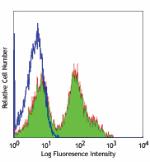
C57BL/6 mouse splenocytes stained with 7E9 FITC -
PE anti-mouse CD21/CD35 (CR2/CR1)
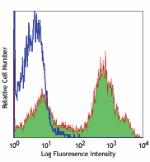
C57BL/6 mouse splenocytes stained with 7E9 PE -
APC anti-mouse CD21/CD35 (CR2/CR1)
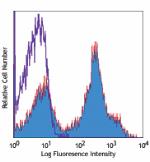
C57BL/6 mouse splenocytes stained with 7E9 APC -
Pacific Blue™ anti-mouse CD21/CD35 (CR2/CR1)
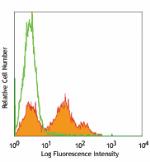
C57BL/6 splenocytes stained with 7E9 Pacific Blue™ 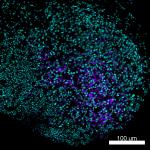
Mice were injected subcutaneously with sheep red blood cells... -
PerCP/Cyanine5.5 anti-mouse CD21/CD35 (CR2/CR1)
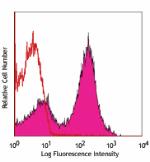
C57BL/6 splenocytes stained with 7E9 PerCP/Cyanine5.5 -
Brilliant Violet 421™ anti-mouse CD21/CD35 (CR2/CR1)
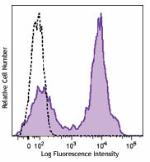
C57BL/6 splenocytes stained with CD21/CD35 (clone 7E9) Brill... -
Alexa Fluor® 647 anti-mouse CD21/CD35 (CR2/CR1)
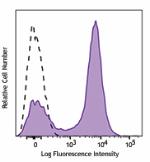
C57BL/6 splenocytes stained with CD21/CD35 (clone 7E9) Alexa... 
Paraformaldehyde-fixed (4%), 500 μm-thick mouse spleen secti... -
Alexa Fluor® 594 anti-mouse CD21/CD35 (CR2/CR1)
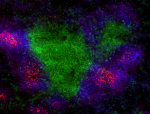
C57BL/6 mouse frozen spleen section was fixed with 4% parafo... 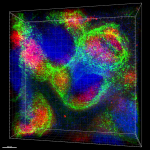
Formalin-fixed, 400 micron-thick mouse spleen section was bl... 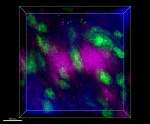
Paraformaldehyde-fixed (4%), 500 μm-thick mouse spleen secti... -
TotalSeq™-A0107 anti-mouse CD21/CD35 (CR2/CR1)
-
Alexa Fluor® 700 anti-mouse CD21/CD35 (CR2/CR1)

C57BL/6 splenocytes were stained with CD45R/B220 PE and CD21... -
APC/Fire™ 750 anti-mouse CD21/CD35 (CR2/CR1)

C57BL/6 splenocytes were stained with CD45R/B220 PE and CD21... -
TotalSeq™-C0107 anti-mouse CD21/CD35 (CR2/CR1)
-
Brilliant Violet 711™ anti-mouse CD21/CD35 (CR2/CR1)

C57BL/6 splenocytes were stained with CD45R/B220 PE and CD21... -
PE/Dazzle™ 594 anti-mouse CD21/CD35 (CR2/CR1)

C57BL/6 splenocytes were stained with CD45R/B220 FITC and CD... -
Brilliant Violet 510™ anti-mouse CD21/CD35 (CR2/CR1)

C57BL/6 splenocytes were stained with CD45R/B220 PE and CD21... -
Ultra-LEAF™ Purified anti-mouse CD21/CD35 (CR2/CR1)
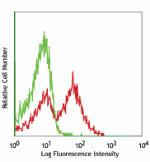
C57BL/6 mouse splenocytes stained with Ultra-LEAF™ purified ...

 Login / Register
Login / Register 











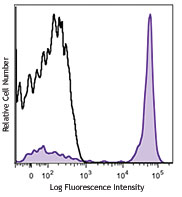
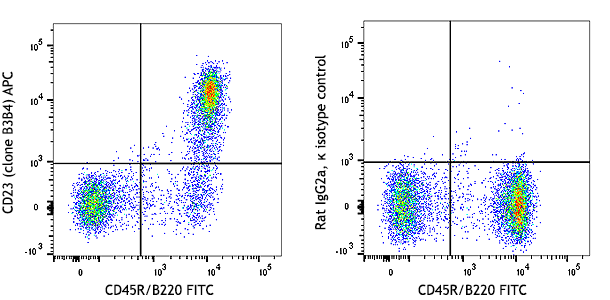
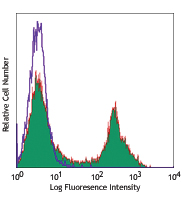
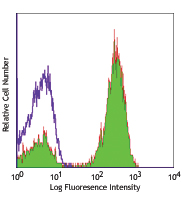






Follow Us